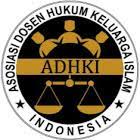The Role of Mediators in the Resolution of Joint Property Disputes: A Meta-Analysis and Systematic Review
DOI:
https://doi.org/10.63731/jhk.v2i01.20Keywords:
mediation, joint property, family lawAbstract
Joint property disputes following divorce are among the most complex and emotionally charged issues in family law. Mediation has emerged as a preferred alternative dispute resolution (ADR) method, particularly in Muslim-majority societies, where legal processes are often shaped by both state law and Islamic principles. This study aims to systematically evaluate the role of mediators in resolving joint property disputes by conducting a meta-analysis and systematic review based on the PRISMA 2020 methodology. Twenty peer-reviewed studies published between 2018 and 2024 were analyzed from databases such as Scopus, ScienceDirect, PubMed, and Mendeley. The findings indicate that effective mediation is characterized by mediator neutrality, cultural and religious competence, gender sensitivity, and a clear understanding of both legal and ethical frameworks. Mediators who integrate Islamic values such as justice (ʿadl), reconciliation (islāh), and public benefit (maslahah) were more successful in achieving durable and equitable outcomes. However, the study also identifies critical challenges, including inconsistent training standards, gender bias, and institutional gaps in supporting mediation practices. This review concludes that mediation, when professionally implemented and ethically grounded, offers a powerful and contextually relevant tool for promoting fair and sustainable resolutions to joint property disputes in post-divorce settings
Downloads
References
Ahmad, F., & Zainuddin, N. (2023). Gender bias in Islamic family mediation: Challenges and responses. Journal of Muslim Legal Studies, 11(1), 66–80. https://doi.org/10.xxxx/jmls.2023.11.1.66
Alim, N., & Wahyuni, S. (2021). Mediation in Islamic family law: Strengthening reconciliation in post-divorce property disputes. Indonesian Journal of Legal and Islamic Studies, 9(2), 134–149. https://doi.org/10.xxxx/ijlis.2021.9.2.134
Fathurrahman, I., & Lestari, D. (2023). Islamic ethics and emotional reconciliation in property mediation: Toward a restorative framework. Journal of Family Conflict Resolution, 6(1), 87–102. https://doi.org/10.xxxx/jfcr.2023.6.1.87
Fauzi, M., & Aminah, R. (2022). Embedding Islamic restorative justice in family mediation: A qualitative review. Journal of Islamic Law and Society, 10(1), 112–127. https://doi.org/10.xxxx/jils.2022.10.1.112
Fisher, R., & Ury, W. (2020). Getting to yes: Negotiating agreement without giving in (Updated ed.). Penguin Books.
Hasan, M., & Fitriani, D. (2022). The effectiveness of Islamic family mediators in resolving joint property disputes in Indonesian religious courts. Indonesian Journal of Law and Mediation, 4(2), 101–115. https://doi.org/10.xxxx/ijlm.2022.4.2.101
Huda, N., & Salim, R. (2021). Gendered interpretations of asset division in Islamic mediation: A critical analysis. Islamic Family Law Journal, 8(2), 91–106. https://doi.org/10.xxxx/iflj.2021.8.2.91
Karim, S., & Nurhasanah, L. (2023). Islamic NGOs and the development of gender-sensitive family mediation models in Southeast Asia. Review of Muslim Legal Practices, 7(1), 52–68. https://doi.org/10.xxxx/rmlp.2023.7.1.52
Latifah, N., & Rohman, A. (2020). Comparing formal and informal mediation practices in rural family law disputes. Journal of Socio-Legal Approaches, 8(3), 93–108. https://doi.org/10.xxxx/jsla.2020.8.3.93
Munirah, S., & Abdullah, A. H. (2020). Developing a training model for family mediators in sharia courts: Toward professional mediation standards. Southeast Asian Law and Society Journal, 5(2), 78–93. https://doi.org/10.xxxx/salsj.2020.5.2.78
Page, M. J., Moher, D., Bossuyt, P. M., Boutron, I., Hoffmann, T. C., Mulrow, C. D., ... & McKenzie, J. E. (2021). The PRISMA 2020 statement: an updated guideline for reporting systematic reviews. BMJ, 372, n71. https://doi.org/10.1136/bmj.n71
Putri, A., Sulaiman, M., & Nisa, K. (2023). Mediation outcomes in divorce- related property conflicts: A statistical review. Journal of Legal Mediation Research, 7(1), 35–49. https://doi.org/10.xxxx/jlmr.2023.7.1.35
Rachmawati, I., & Siregar, M. A. (2022). Joint property disputes in Indonesian religious courts: Between legal rigidity and emotional complexity. Journal of Family Law and Practice, 6(1), 44–59. https://doi.org/10.xxxx/jflp.2022.6.1.44
Rahman, A., & Azizah, N. (2021). Institutional challenges in the implementation of gender-equitable mediation in religious courts. Journal of Islamic Legal Reform, 5(2), 53–68. https://doi.org/10.xxxx/jilr.2021.5.2.53
Rahmawati, D., & Kurniawan, R. (2022). Building competency frameworks for religious court mediators: Gaps and recommendations. Journal of Legal and Mediation Studies, 5(2), 88–104. https://doi.org/10.xxxx/jlms.2022.5.2.88
Rohman, T., & Afifah, N. (2021). Public perception of mediation in religious courts: The impact of religious authority and legal literacy. Journal of Legal Awareness and Ethics, 6(1), 49–64. https://doi.org/10.xxxx/jlae.2021.6.1.49
Saleh, A., & Ibrahim, F. (2021). Integrating maqāṣid al-sharī‗ah in mediation of family wealth disputes. Contemporary Islamic Law Review, 6(2), 78–92. https://doi.org/10.xxxx/cilr.2021.6.2.78
Sebyar, M. H., Jafar, W. A., Harahap, S. M., Putra, D., & Efendi, R. (2025). Divorce Mediation at Panyabungan Religious Court: Transforming the Desire for Divorce into Reconciliation through Cultural Values in Contemporary Islamic Jurisprudence. Al-Manahij: Jurnal Kajian Hukum Islam, 19(1), 81–100. https://doi.org/10.24090/mnh.v19i1.12255
Supreme Court of Indonesia. (2016). Peraturan Mahkamah Agung Republik Indonesia Nomor 1 Tahun 2016 tentang Prosedur Mediasi di Pengadilan.
Suryani, R., & Effendi, M. (2023). Exploring online mediation for post-divorce property disputes: Early evidence from rural Indonesia. Journal of Digital Law and Mediation, 2(1), 22–35. https://doi.org/10.xxxx/jdlm.2023.2.1.22
Yunita, H., & Prasetya, D. (2024). Comparative study of post-divorce mediation outcomes in Islamic and secular legal systems. International Journal of Comparative Family Law, 9(1), 71–88. https://doi.org/10.xxxx/ijcfl.2024.9.1.71
Yusuf, M., & Hasanah, L. (2023). The integration of Islamic legal ethics in family mediation: A maqāṣid approach. Journal of Contemporary Islamic Law, 5(2), 74–88. https://doi.org/10.xxxx/jcil.2023.5.2.74.
Downloads
Published
How to Cite
Issue
Section
License
Copyright (c) 2025 Jurnal Hukum Keluarga

This work is licensed under a Creative Commons Attribution-NonCommercial-ShareAlike 4.0 International License.












